KubeCon + CloudNativeCon North America 2023 was held in Chicago, Illinois, from November 6–9, 2023. It is the flagship conference of the Cloud Native Computing Foundation (CNCF) and brings together adopters and technologists from leading open source and cloud native communities.
Here are the top 5 Highlights and announcements from KubeCon + CloudNativeCon North America 2023 include:
Kubernetes 1.27.7 and 1.28.3
These were announced on Tuesday, November 7 in the keynote session by Tim Hockin, Distinguished Engineer at Google.
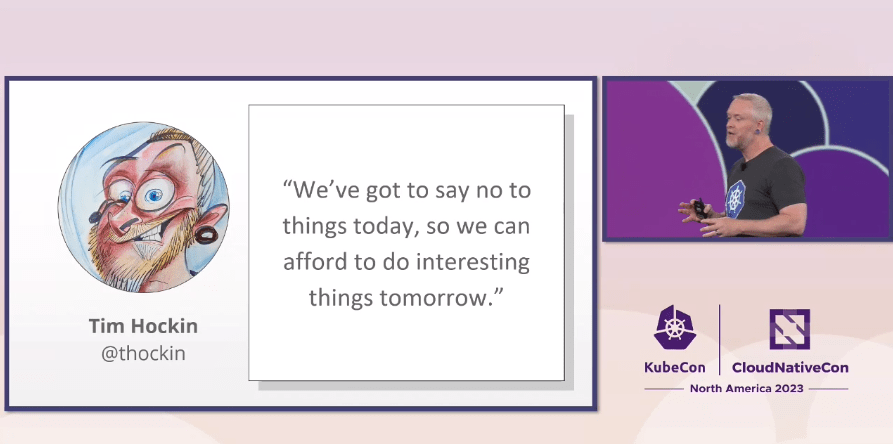
Here’s a brief summary:
- Tim Hockin is a Distinguished Engineer at Google and one of the original creators of Kubernetes.
- He talked about the vision for Kubernetes in its second decade and how the project has evolved from a simple container orchestrator to a platform for building platforms.
- He highlighted some of the new features and improvements in Kubernetes 1.27 and 1.28, such as:
- Support for IPv6 dual-stack, which allows pods and services to have both IPv4 and IPv6 addresses.
- Topology-aware service routing, which enables service traffic to be routed to the closest endpoints based on node labels.
- Graceful node shutdown, which allows pods to be terminated gracefully when a node is shutting down.
- Improved CRI-O support, which makes CRI-O the default container runtime for OpenShift and enhances its compatibility with Kubernetes.
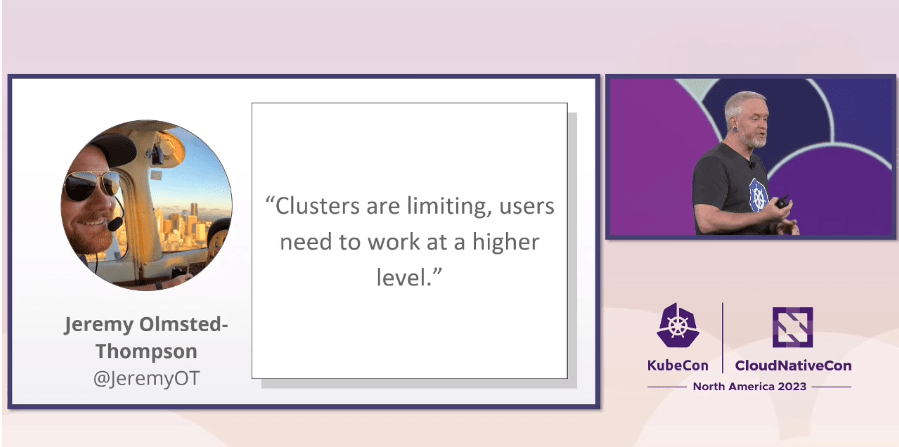
- He also discussed some of the challenges and opportunities for the future of Kubernetes, such as:
- Scaling up and out, which involves supporting larger clusters, more nodes, more pods, and more workloads.
- Simplifying and streamlining, which involves reducing complexity, improving usability, and enhancing security.
- Extending and integrating, which involves enabling more use cases, supporting more ecosystems, and fostering more innovation.
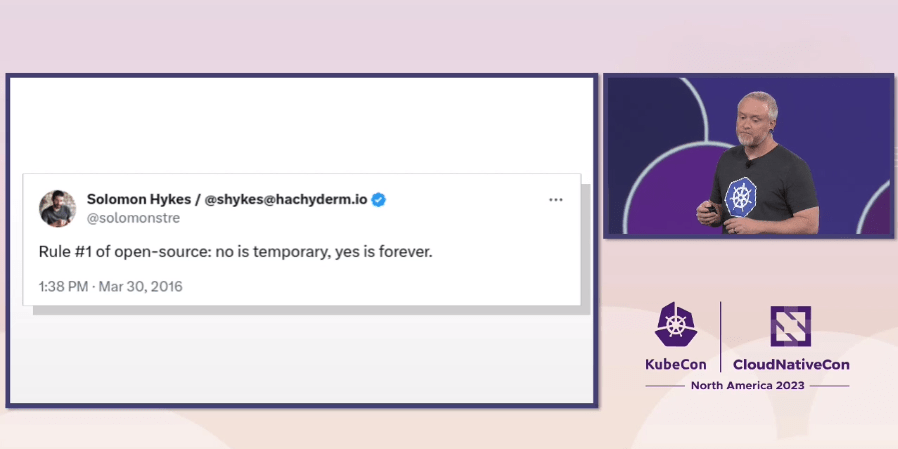
OpenTelemetry
This was announced on Tuesday, November 7 in the keynote session by Frederick Kautz, Director of R&D at TestifySec.
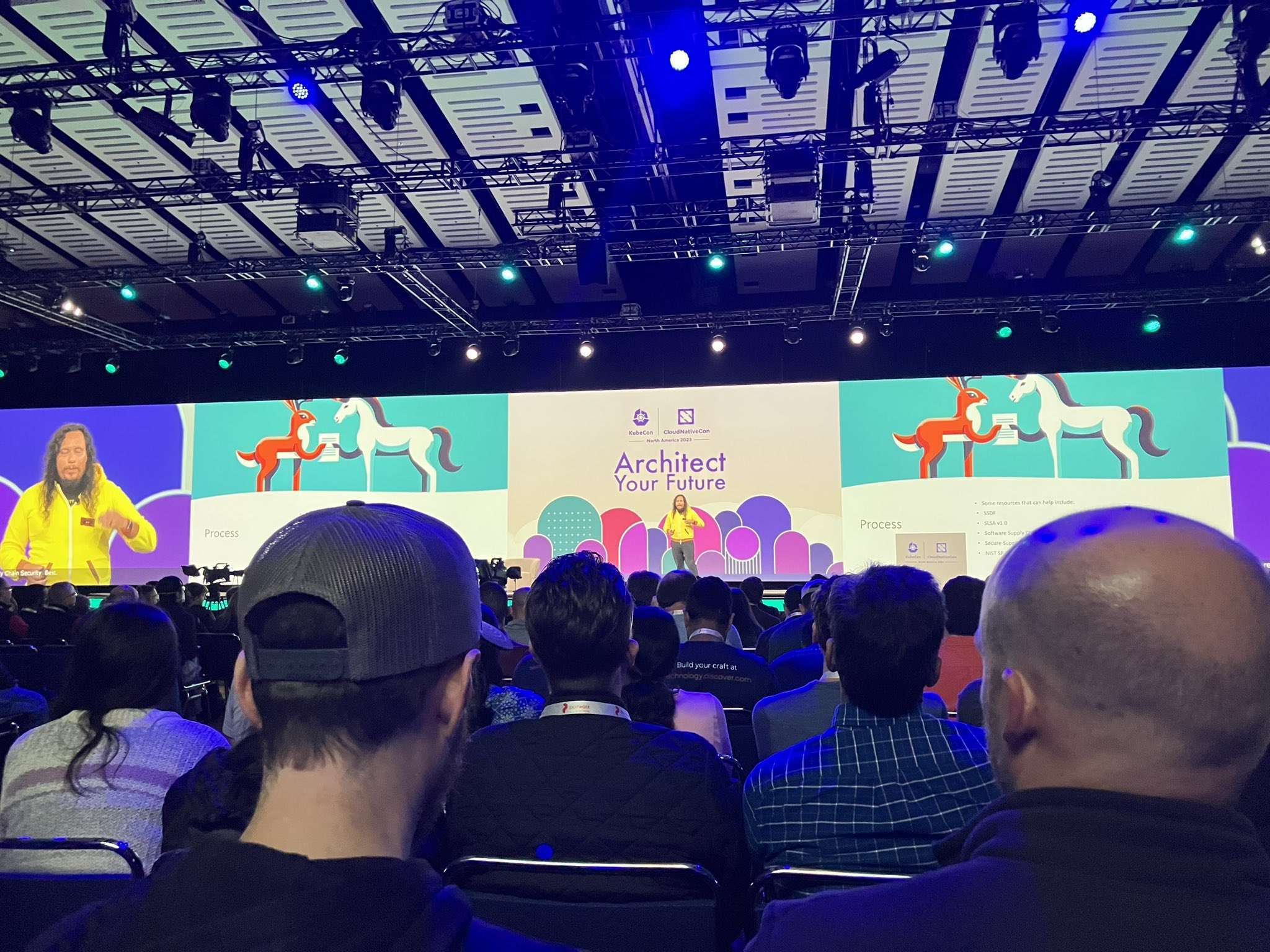
Here is a brief summary:
- Frederick Kautz is the Director of R&D at TestifySec and a co-chair of the KubeCon + CloudNativeCon North America 2023 event.
- He talked about the importance of software supply chain security in open source, and how OpenTelemetry can help to achieve it.
- He explained that software supply chain security is the process of ensuring that the software we use is free from malicious or compromised code, and that we can trust its origin and integrity.
- He highlighted some of the challenges and risks of software supply chain security, such as:
- The complexity and diversity of software dependencies and components, which make it hard to track and verify their provenance and quality.
- The lack of visibility and control over the software development and delivery lifecycle, which make it vulnerable to attacks and breaches.
- The potential impact and damage of software supply chain attacks, which can compromise the confidentiality, integrity, and availability of the software and its users.
- He introduced OpenTelemetry as a graduated project of CNCF that provides a single, vendor-agnostic instrumentation standard for cloud native software.
- He demonstrated how OpenTelemetry can help to improve software supply chain security, by enabling observability across multiple domains, such as metrics, traces, and logs.
- He showed how OpenTelemetry can be used to collect and analyze data from various sources and stages of the software supply chain, such as:
- The source code repository, where OpenTelemetry can capture the commit history, the code quality, and the code coverage.
- The build system, where OpenTelemetry can measure the build time, the build status, and the build artifacts.
- The container registry, where OpenTelemetry can verify the container image, the container signature, and the container metadata.
- The deployment platform, where OpenTelemetry can monitor the deployment process, the deployment configuration, and the deployment health.
- The runtime environment, where OpenTelemetry can track the runtime performance, the runtime behavior, and the runtime errors.
- He also shared some of the best practices and recommendations for using OpenTelemetry for software supply chain security, such as:
- Adopting a holistic and end-to-end approach, which involves instrumenting and observing the entire software supply chain, from source to destination.
- Leveraging the existing and emerging standards and frameworks, such as SBoM, Sigstore, in-toto, and Grafeas, which can enhance the interoperability and compatibility of OpenTelemetry with other tools and platforms.
- Collaborating and contributing to the open source community, which can foster the innovation and adoption of OpenTelemetry and other cloud native technologies.
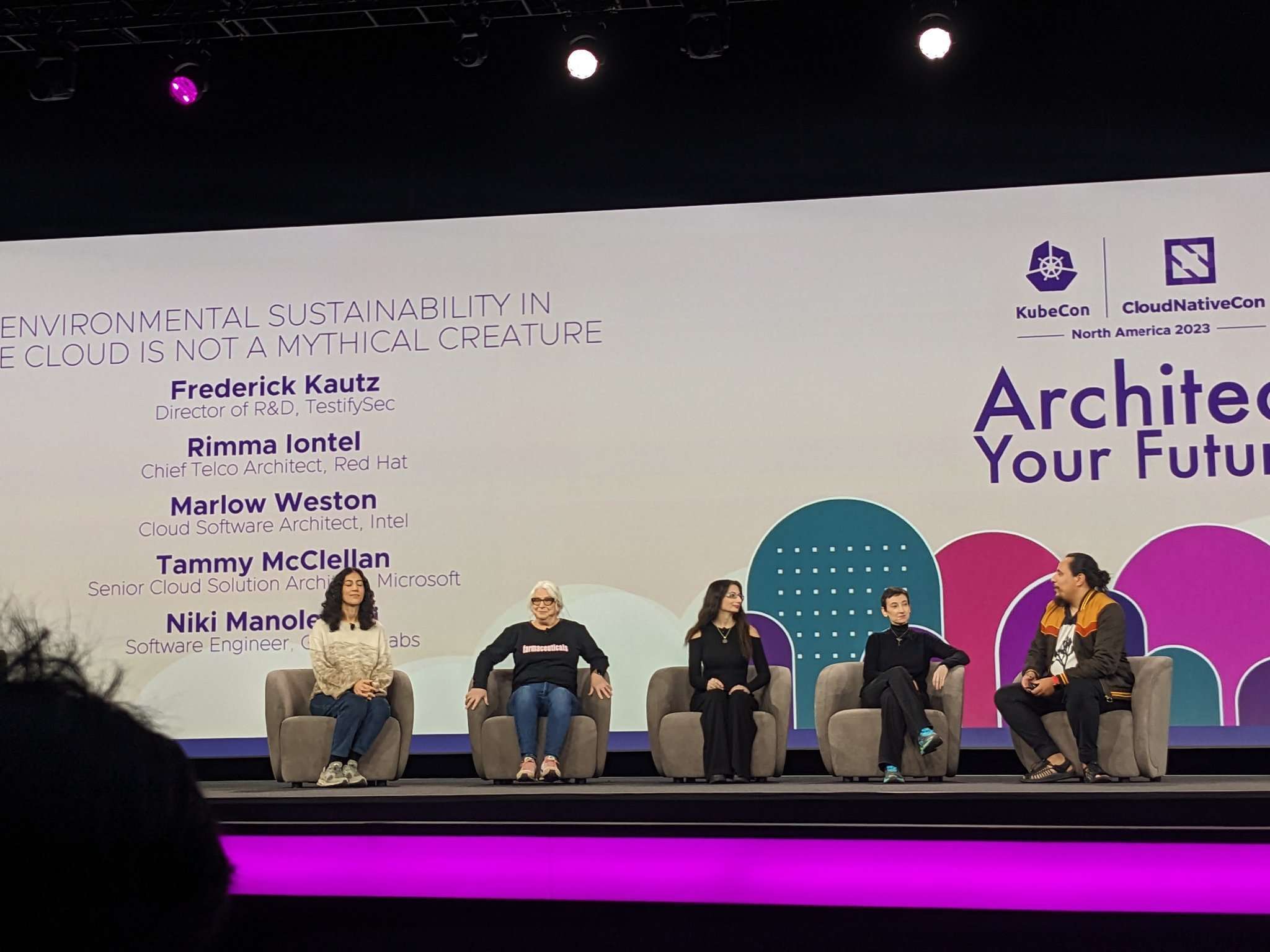
Crossplane
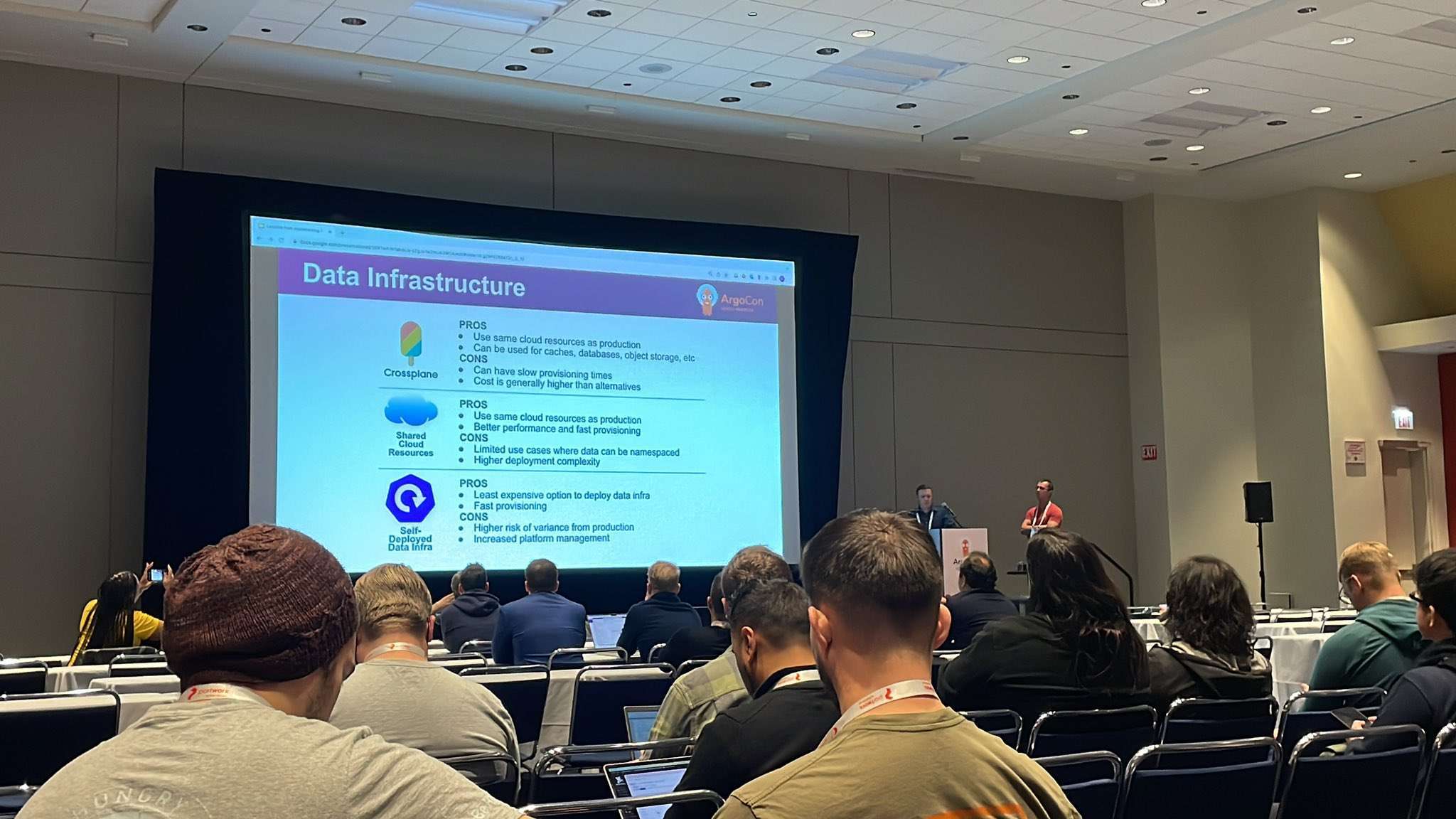
This was announced on Tuesday, November 7 in the keynote session by the CNCF Technical Oversight Committee.
Here is a brief summary:
- Crossplane is an incubating project of CNCF that enables platform teams to assemble infrastructure from multiple vendors, expose higher-level self-service APIs, and add Kubernetes-native abstractions.
- Crossplane was announced as an incubating project on Tuesday, November 7, in the keynote session by the CNCF Technical Oversight Committee.
- Crossplane allows users to manage cloud services and infrastructure using Kubernetes APIs and tools, and to compose them into higher-level application platforms.
- Crossplane supports a wide range of cloud providers, such as AWS, Azure, GCP, Alibaba, IBM, and more, as well as on-premises and hybrid environments.
- Crossplane leverages the Kubernetes controller pattern, custom resource definitions, and packages to enable declarative, consistent, and portable management of cloud resources.
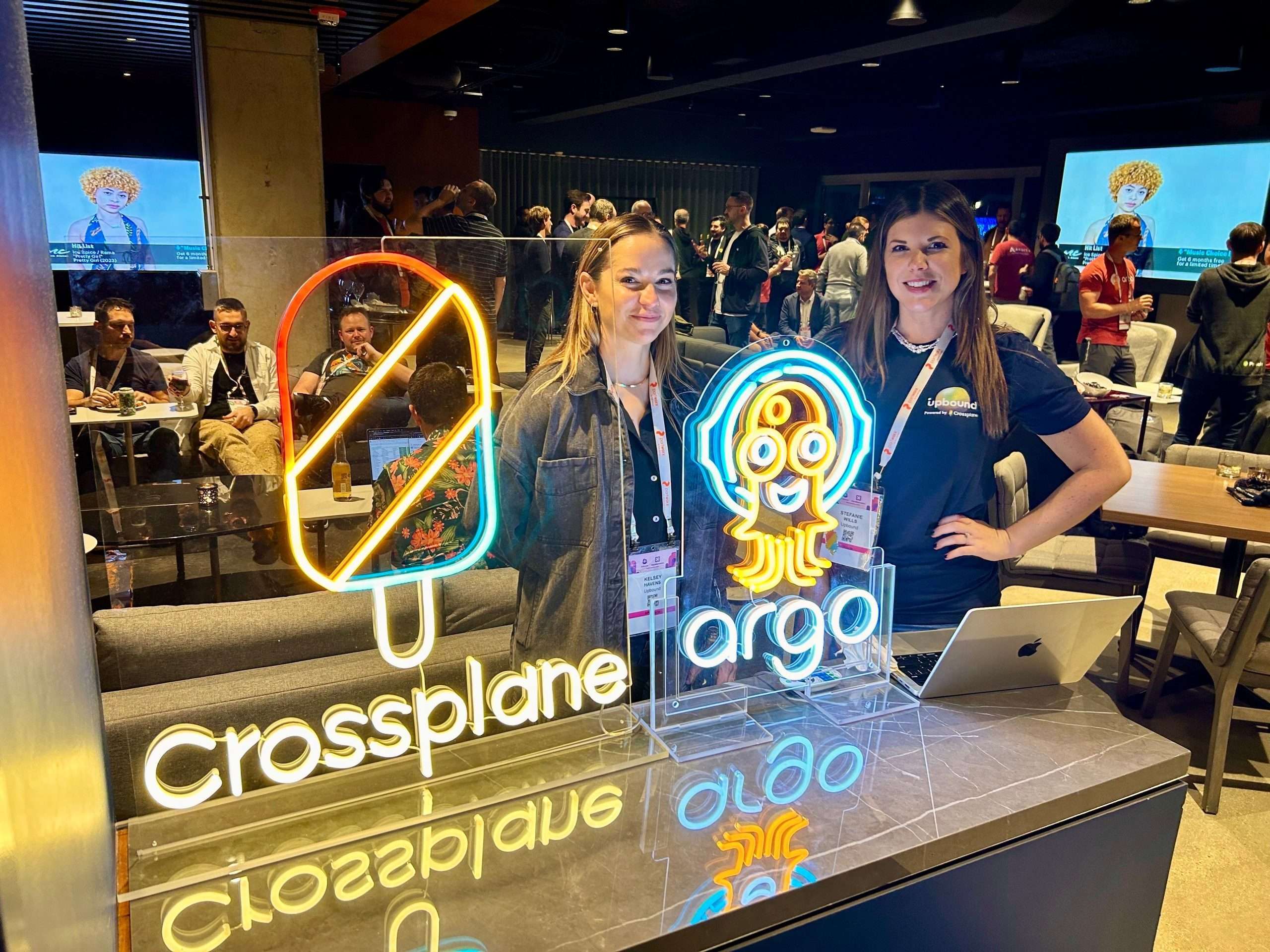
- Crossplane also integrates with other CNCF projects, such as Helm, OPA, Flux, and Argo, to provide a comprehensive cloud native platform experience.
eBPF
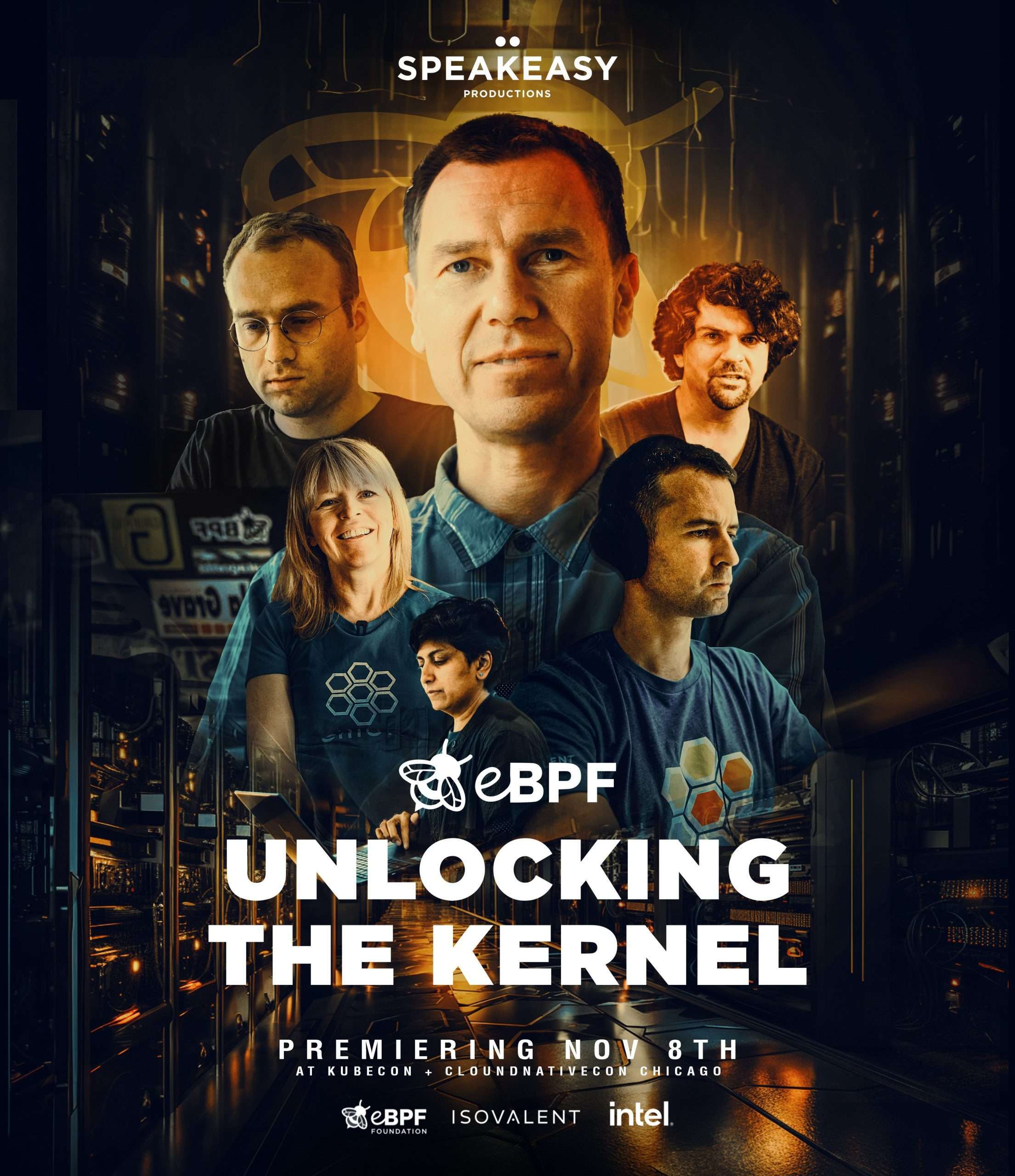
This was announced on Sunday, November 5 in the documentary film "eBPF: Unlocking the Kernel" hosted by Isovalent.
Here is a summary of what was said on eBPF announced on Sunday, November 5 in the KubeCon + CloudNativeCon North America 2023 event:
-
eBPF is a technology that enables running user-defined programs in the Linux kernel, transforming network traffic handling for SDN environments.
-
eBPF was announced in a documentary film titled "eBPF: Unlocking the Kernel" hosted by Isovalent, a company that provides eBPF-based networking and security solutions.
-
The film explored the origins, stories, challenges, and rewards of eBPF, and featured interviews with key stakeholders from Meta, Intel, Isovalent, Google, Red Hat, and Netflix who helped shape and build the tools that drove the success and adoption of eBPF.
-
The film also showcased how eBPF can be used for various purposes, such as networking, security, observability, and performance optimization, and how it is supported by several CNCF projects, such as Cilium, Falco, and KubeFlow.
AI, WASM, and Quantum Computing
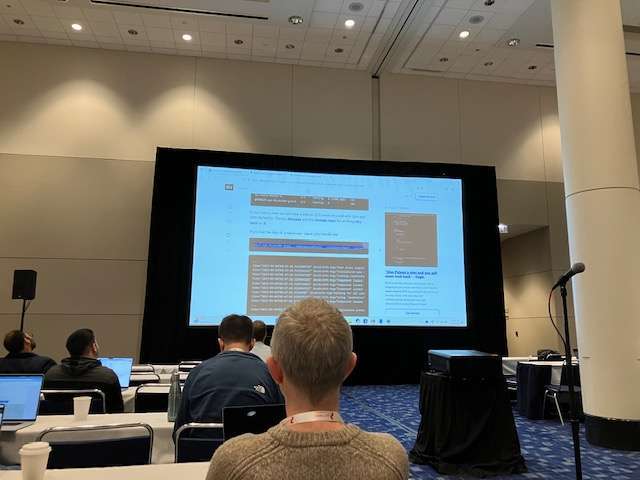
These were announced on Wednesday, November 8 and Thursday, November 9 in various breakout sessions, such as "Environmentally Sustainable AI via Power-Aware Batch Scheduling" and "An Offer You Can’t Refuse: Discovering Chicago Film Sets with MLOps in Kubernetes".
Here is a summary of what was spoken on "AI, WASM and Quantum Computing" on Thursday, November 9 in the KubeCon + CloudNativeCon North America 2023 event:
- These are some of the emerging topics and challenges of cloud native development, which involve using artificial intelligence, WebAssembly, and quantum computing to enhance the capabilities and efficiency of cloud native applications.
- There were several breakout sessions that explored these topics, such as:
- "Environmentally Sustainable AI via Power-Aware Batch Scheduling" by Atanas Atanasov from Intel and Daniel Wilson from Boston University. They presented a novel approach to reduce the energy consumption and carbon footprint of AI workloads on Kubernetes clusters, by using power-aware batch scheduling algorithms that leverage hardware-level power management features.
- "An Offer You Can’t Refuse: Discovering Chicago Film Sets with MLOps in Kubernetes" by Annie Talvasto from VSHN and Adi Polak from Treeverse. They demonstrated how to build and deploy a machine learning pipeline on Kubernetes that can identify and locate film sets in Chicago, using data from IMDb and OpenStreetMap, and tools such as Kubeflow, MLflow, and LakeFS.
- "WebAssembly in the Cloud: A New Frontier for Cloud Native Development" by Daniel Bryant from Ambassador Labs and Idit Levine from Solo.io. They discussed the benefits and challenges of using WebAssembly as a portable and secure runtime for cloud native applications, and how it can be integrated with Kubernetes, Envoy, and Istio, using projects such as WebAssembly Hub, Krustlet, and WasmEdge.
- "Quantum Computing on Kubernetes: A Primer" by Michael McCool from Intel and Peng Liu from Alibaba Cloud. They introduced the basics and concepts of quantum computing, and how it can be leveraged for cloud native applications. They also showed how to run quantum simulations and experiments on Kubernetes clusters, using frameworks such as Qiskit, Cirq, and Alibaba Cloud Quantum Development Kit.
Overall, KubeCon + CloudNativeCon North America 2023 was a successful event that showcased the latest developments in cloud native computing. The conference highlighted the growing importance of Kubernetes, as well as the increasing focus on observability, security, and sustainability. It also provided a forum for the cloud native community to come together and share ideas.




